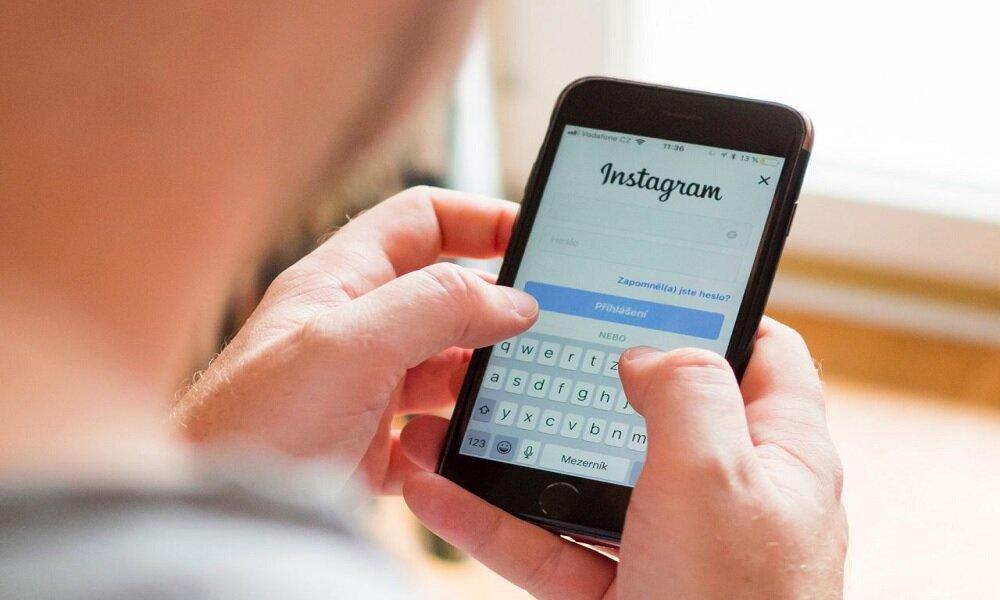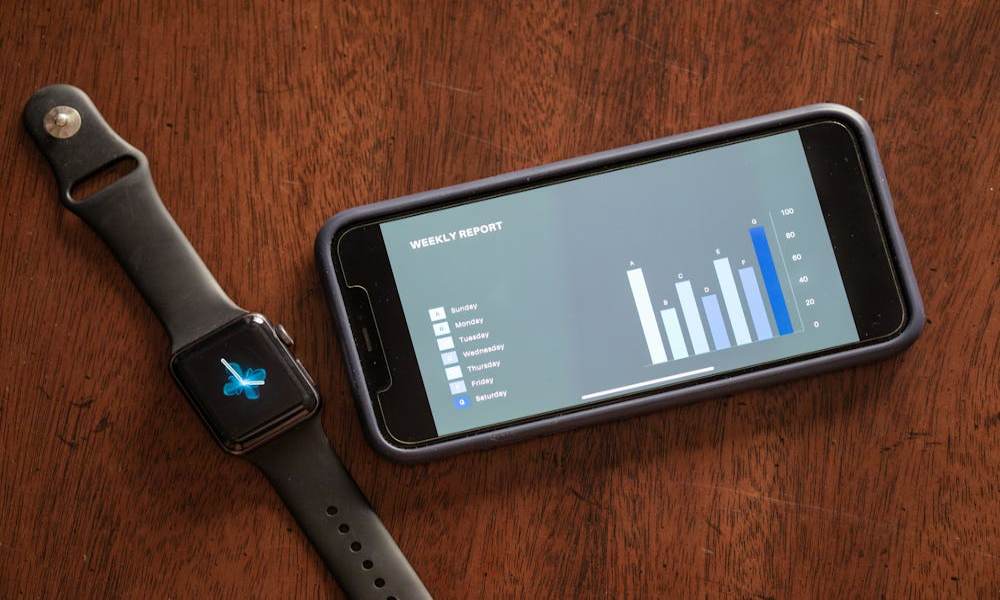How Can You Clone a Phone? 6 Ways to Do It Safely

Ever wondered how you can clone a phone? Whether you're switching devices, backing up data, or simply keeping an eye on your kids, phone cloning can be a useful tool.
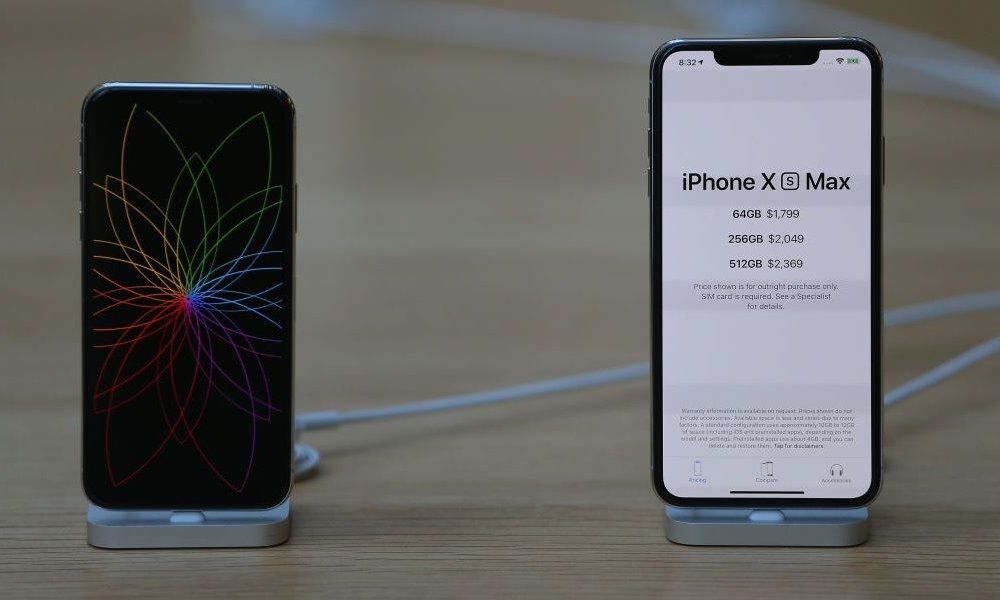
In this article, we'll discuss the methods available for cloning a phone. But before we dive into that, let's first look at what phone cloning actually means and how it works.
Is It Possible to Clone a Phone?
Yes, it is possible to clone a phone. Cloning refers to creating an exact replica of a phone's data, apps, settings, and more.
With modern tools and apps, cloning a phone is easier than ever, and in many cases, it can even be done remotely without physical access to the device.
This has made phone cloning popular for a variety of reasons, including upgrading to a new phone, monitoring someone's activity, or simply creating a backup of important data.
6 Effective Ways to Clone a Phone
If you're trying to back up data, monitor a loved one's phone for safety, or recover information from a lost device, phone cloning can be a surprisingly effective method. Below are six effective ways on how to clone a phone, depending on the device type and purpose.
1. Using SafeMyKid (The Best Way to Clone a Phone)

SafeMyKid is one of the best ways to clone a phone, especially for parents looking to monitor their child's phone activities without needing physical access.
SafeMyKid allows parents to monitor phone usage, messages, and apps, making it one of the most effective ways to clone and monitor a phone.
This app works discreetly in the background, offering detailed insights into text messages, call logs, GPS location, and app activity. It also supports geofencing, alerts, and browser history tracking, ensuring parents' peace of mind.
Why Use SafeMyKid to Clone a Phone
If you need to monitor a phone discreetly or recover essential information from a device, SafeMyKid is a reliable choice. It provides a range of tools that can help you clone a phone in a way that is both efficient and secure.
- Real-time Data Syncing: Access real-time information and activity from the target phone, including messages, calls, and app usage.
- No Physical Access Needed: You don't need to touch the device, as SafeMyKid works with both iPhones and Android devices remotely.
- Stealth Mode: The app operates in the background without alerting the target, making it ideal for discreet tracking.
- Comprehensive Phone Monitoring: Clone and view detailed information like call logs, social media interactions, location history, and even deleted messages.
- Cross-Platform Compatibility: Whether you are using an Android or iPhone, SafeMyKid ensures you can clone the device and access its contents without complicated setups.
SafeMyKid offers a seamless and secure way to clone a phone, helping you keep track of essential data without raising suspicion.
How to Use SafeMyKid to Clone a Phone
If you're looking to clone an iPhone, SafeMyKid offers a hassle-free solution that allows you to monitor activity without the need for physical access. It supports remote monitoring through iCloud, making it easy to track key data on the target device.
How to Clone an Android Phone
Step 1.Sign up
Create an account on SafeMyKid.

Step 2.Install The App on The Target Android Device
SafeMyKid only needs to be installed on Android devices. It's compatible with most Android phones, so simply download the app from their official website.
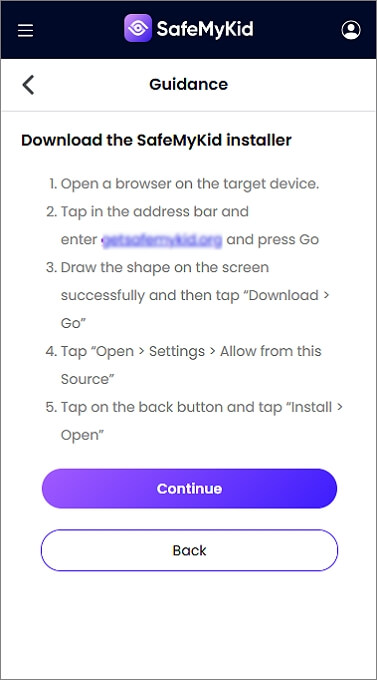
Step 3.Clone an Android Phone
You can monitor the device remotely via a web portal or mobile app, checking for text messages, call logs, social media activity, and more.

How to Clone an iPhone
Step 1.Create an Account
Start by signing up on the SafeMyKid website.

Step 2.Enter iCloud Credentials
To clone the iPhone, you'll need the target's Apple ID and password. Once entered, the app syncs data from the iCloud account.
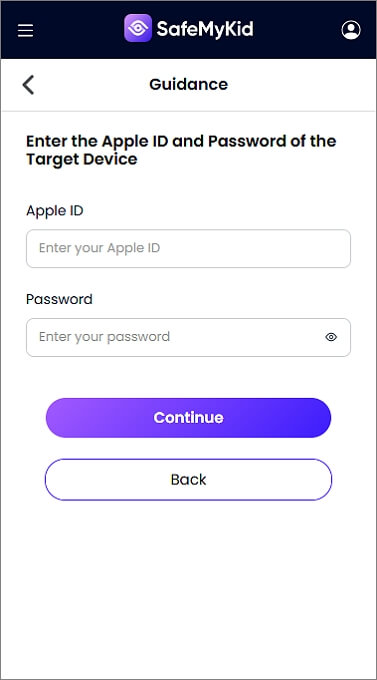
Step 3.Clone an iPhone
You can access the iPhone's data remotely via your SafeMyKid dashboard. This allows you to track text messages, call logs, browsing history, app usage, and even deleted data.

SafeMyKid makes phone cloning straightforward and safe, providing a great option for parents who need to monitor their child's phone.
2. Using iCloud (for iPhones)
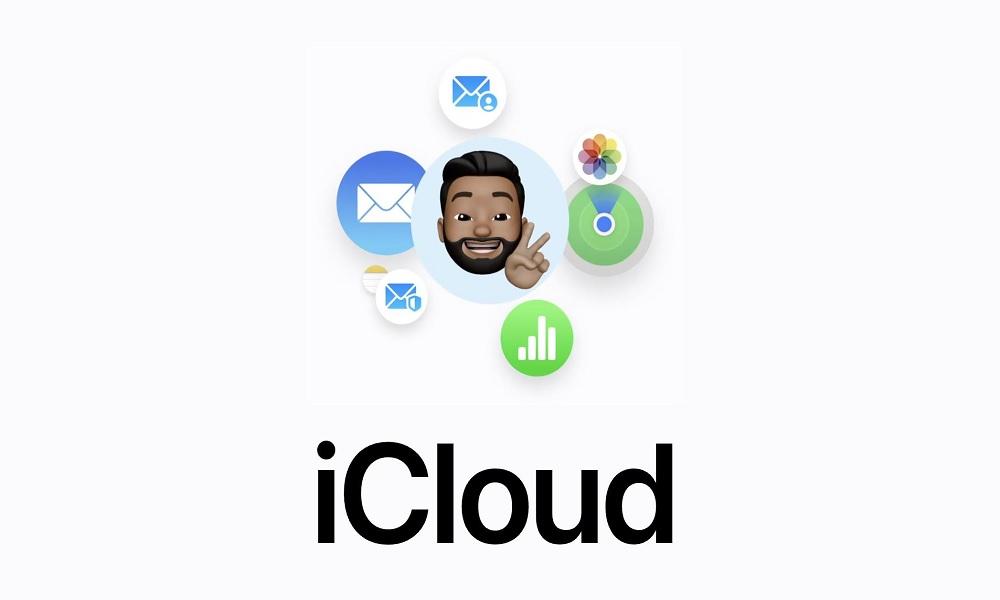
iCloud provides iPhone users with a reliable and secure way to clone their devices by backing up essential data and settings.
By signing into the same iCloud account on both iPhones, users can initiate a backup on the old phone and restore it to the new one. This process transfers apps, contacts, photos, messages, and device settings, ensuring a seamless transition.
It's especially useful when upgrading to a new iPhone, as Apple's ecosystem is designed to make the transfer quick and efficient through iCloud's cloud-based storage and sync services.
Pros:
- It's free and secure.
- Simple process with no need for third-party apps.
- Ensures data consistency across devices.
Cons:
- This method only works for Apple devices
- Requires you to have access to both iCloud accounts.
3. Using Google Account Sync (for Android)
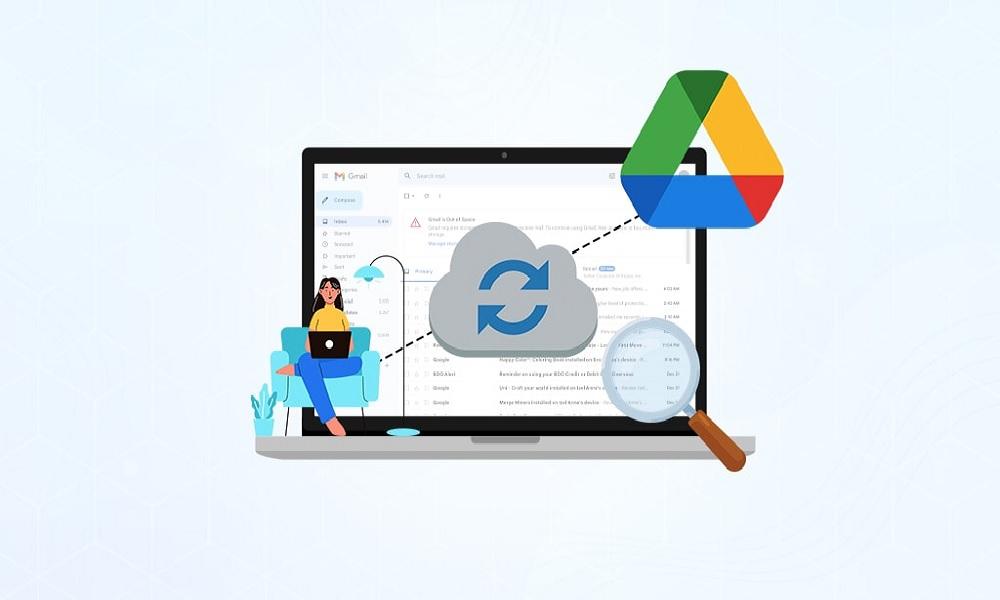
Google Account Sync allows Android users to effortlessly clone their phone data by linking it to their Google account. Through Google Drive, users can back up apps, contacts, call history, device settings, calendar entries, and SMS messages.
When signing into the same Google account on a new Android device, users are prompted to restore this backed-up data, making the transition nearly automatic.
This method is particularly useful when switching phones or resetting a device, as it preserves most of the important information and personal preferences without requiring additional software.
Pros:
- It's a built-in feature on Android devices.
- Syncs various types of data, including apps, contacts, and calendar events.
- Doesn't require additional software installation.
Cons:
- Google does not back up all types of data, such as SMS messages or app data.
- Restoring may not work perfectly for apps with personalized data.
4. Using Phone Clone Apps
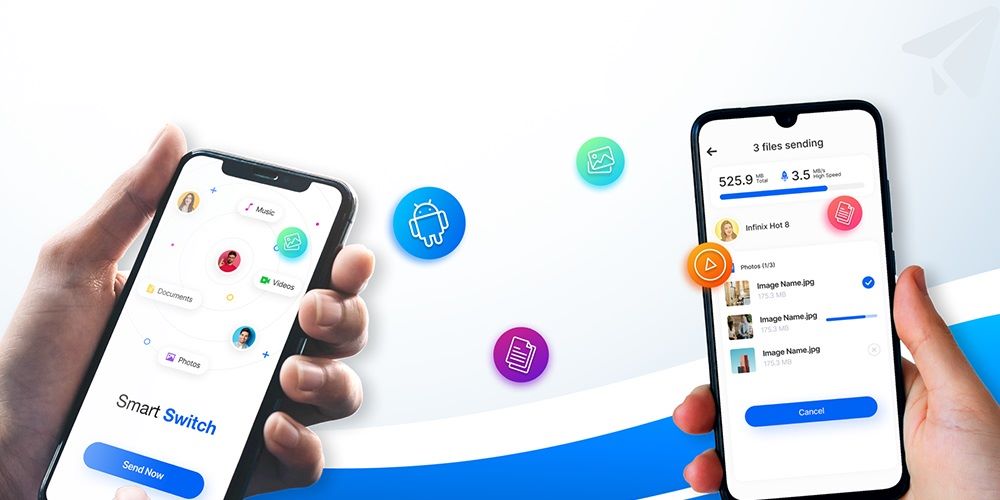
Phone cloning apps such as Huawei's Phone Clone, Dr.Fone, and CLONEit enable users to transfer data directly from one phone to another without needing a cloud service.
These apps typically use a direct wireless connection——Wi-Fi hotspot, QR code pairing, or Bluetooth——to create a fast and secure channel for transferring contacts, photos, videos, messages, call logs, and even installed apps.
They support cross-platform transfers in many cases, which is helpful when switching between Android and iPhone. These tools are particularly useful for users who want complete control over the cloning process and need a fast, local solution.
Pros:
- Fast data transfer without needing cloud backups.
- Can transfer most types of data, including apps and media.
- Available for both Android and iOS devices.
Cons:
- Not all apps are free
- Some may require a subscription for full features.
5. Using Bluetooth or NFC (File Transfer)

Bluetooth and NFC (Near Field Communication) are traditional wireless methods for sharing files between devices, but they are limited in terms of what they can transfer.
While they work well for sending individual files like photos, audio, and documents, they do not support full phone cloning. Apps, system settings, and certain types of protected data cannot be moved using these technologies.
Still, Bluetooth and NFC are convenient for quick file transfers without an internet connection, and they can be a helpful supplement when used alongside more comprehensive cloning tools.
Pros:
- Doesn't require an internet connection.
- Quick for transferring smaller files like pictures and documents.
- Simple to use with minimal setup.
Cons:
- These methods are slow and limited in terms of the amount and type of data transferred.
- Not ideal for cloning full phone data like apps and settings.
6. Using SIM Cloning Tools (Advanced Method)
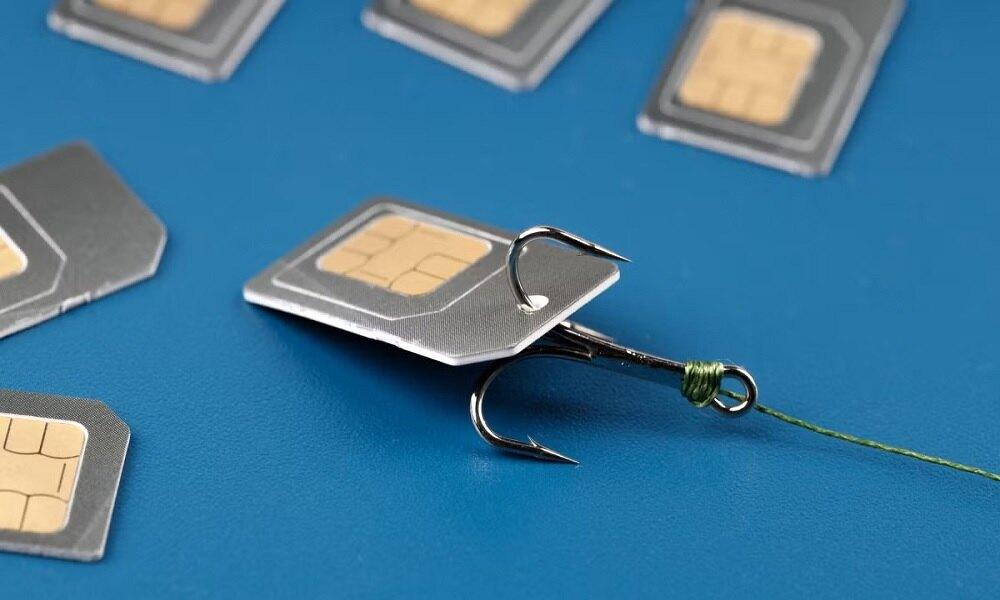
SIM cloning is a technical process that involves duplicating the data from one SIM card onto another. This method allows users to replicate the phone number, carrier settings, and network identity of the original SIM, effectively giving both cards the same capabilities.
However, it requires specialized software and hardware tools, such as a SIM card reader/writer, and knowledge of extracting and copying IMSI and authentication keys.
Due to privacy and legal concerns, SIM cloning is restricted in many countries and is generally only used by professionals for testing or forensic purposes.
Pros:
- Can enable transferring a phone number to a new SIM.
- Provides easy access to phone services associated with the SIM card.
- Often used for transferring mobile network information.
Cons:
- SIM cloning is illegal in many regions and can result in severe penalties.
- Requires specialized tools that are difficult to acquire.
- Risk of misuse for malicious purposes.
Comparison of The 6 Effective Methods to Clone a Phone
If you're cloning a phone for backup, safety monitoring, or data recovery, different methods offer varying levels of ease, access, and legal considerations. Here's a simple breakdown of the most effective methods.
| Method | Platform | No Physical Access Needed | Key Features | Pros | Cons |
|---|---|---|---|---|---|
| 1. SafeMyKid | Android & iPhone | Yes for iPhone | Remote monitoring, stealth mode, real-time sync | Discreet, cross-platform, very detailed | Paid one (but with a free demo) |
| 2. iCloud Backup & Restore | iPhone | No (both devices) | Cloud-based full-device cloning | Secure, easy, free | Apple only; needs an iCloud login |
| 3. Google Account Sync | Android | No | Google Drive backup for contacts, apps, SMS | Built-in, simple, no extra apps needed | Doesn't back up everything |
| 4. Phone Clone Apps | Android & iPhone | No (both devices) | Direct phone-to-phone transfer via Wi-Fi or QR | Fast, local, versatile | Not always free, manual setup required |
| 5. Bluetooth/NFC | All Platforms | No | Transfers media/files only | No internet needed, easy file-sharing | Very limited cloning capability |
| 6. SIM Cloning Tools | All (SIM-based) | No | Copies of SIM data (IMSI, keys) | Can replicate phone number | Illegal in many regions, highly technical |
SafeMyKid is the most versatile and discreet solution——especially if you're looking to monitor a loved one's phone or recover data remotely.
Unlike basic methods like Bluetooth or Google Sync, SafeMyKid offers real-time access, works without physical access, and provides a stealth mode that keeps tracking invisible.
If you need a reliable, secure, and powerful way to clone and monitor a phone, SafeMyKid is your go-to choice.
Why Would You Want to Clone a Phone?

There are several reasons why you might want to clone a phone:
- Upgrading to a new phone: Cloning helps transfer your data, apps, and settings from your old phone to your new one.
- Parental control and monitoring: Parents may want to monitor their child's phone activity to ensure they're staying safe online.
- Backups: If your phone is damaged or lost, cloning it can provide a safety net by ensuring that all your information is preserved.
- Investigating suspicious activity: Sometimes, people may clone phones to monitor suspicious activity, though this should always be done legally and with consent.
Risks and Warnings of Cloning a Phone

Cloning a phone comes with significant risks that users should be aware of. One of the primary concerns is the potential for data breaches, as sensitive information such as personal messages, contacts, and financial details could be exposed.
Another risk involves malware infections, especially when using unverified third-party apps to clone devices. These apps might compromise the security of both the original and cloned phones.
Additionally, privacy violations are a major concern, as cloning someone's phone without their consent can lead to legal repercussions and damage trust.
It's important to ensure that phone cloning is only done for ethical purposes, such as transferring data between devices with the owner's permission.
Always verify that the tools you use are trustworthy and secure to avoid any harmful consequences. Furthermore, you should be aware of local laws regarding phone cloning, as it may be illegal in some jurisdictions.
FAQs on How Can You Clone a Phone
Before wrapping up, let's take a look at some frequently asked questions about how can you clone a cell phone. These answers will help clarify common concerns and offer additional insights beyond the methods discussed above.
1. Is it legal to clone a phone in any situation?
Cloning a phone is legal only if you own the device or have the owner's full consent. Cloning someone's phone without permission is a violation of privacy laws and can lead to severe legal consequences.
2. How can you clone a phone without SIM swapping?
You can clone a phone without swapping the SIM card by using cloud-based syncing tools or monitoring apps like SafeMyKid, which allow you to remotely access and replicate data from one device to another.
This method is especially helpful for parents who need visibility into their child's phone activity without changing their device setup.
3. How can you clone an iPhone without Apple ID credentials?
No, cloning an iPhone without Apple ID credentials is extremely difficult and often illegal. Apple's strong encryption and security features prevent unauthorized access. Even if third-party tools claim to do it, they typically violate Apple's terms of service or data privacy laws.
For lawful purposes like child monitoring, use legal apps like SafeMyKid that don't require jailbreaking or bypassing Apple's security.
4. How can you clone a cell phone if the original phone is broken?
If the original phone is broken but still powers on, you can use data recovery tools or cloud backups to clone its contents to a new device. For example, using a Google or iCloud backup allows you to restore all the apps, settings, and data on the new phone.
5. How can you clone a phone for business monitoring purposes?
To clone a phone for business use——such as employee monitoring on company devices——you need clear policies and employee consent.
Solutions like SafeMyKid can also be adapted for professional settings where device monitoring is necessary. Be sure to follow legal guidelines and avoid covert monitoring, which can violate labor laws.
6. How long does it take to fully clone a phone?
The time it takes to clone a phone depends on the amount of data, the method used, and the internet speed. Using cloud backup or a tool like SafeMyKid can take a few minutes to an hour, while more manual methods involving physical transfers might take longer.
7. Can you clone just specific apps or data from a phone instead of everything?
Yes, certain tools allow you to selectively clone only specific data——like messages, call logs, photos, or social media apps.
SafeMyKid, for instance, focuses on monitoring relevant content for parental control rather than duplicating the entire device. This is useful when you don't need a full device copy but still want targeted access.
Conclusion
How can you clone a phone? Cloning a phone can be helpful in situations such as switching to a new device, backing up important data, or keeping an eye on a loved one's digital safety.
One trusted and effective solution is SafeMyKid, it simplifies the cloning process while ensuring compliance with privacy laws and promoting digital safety. Always prioritize responsible usage.



